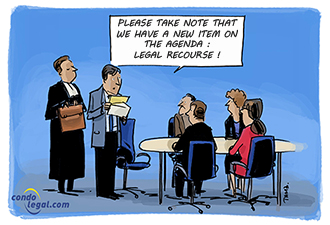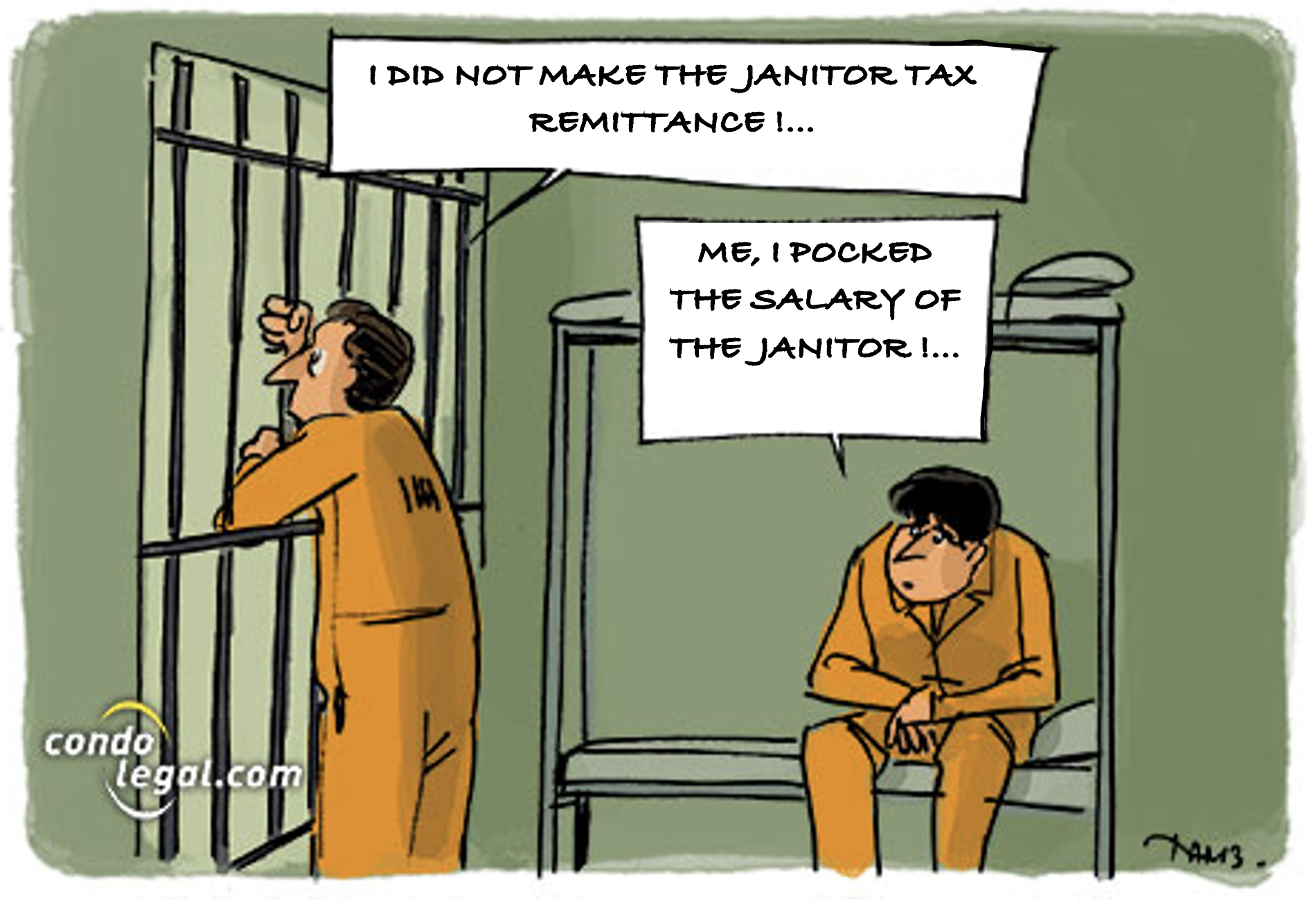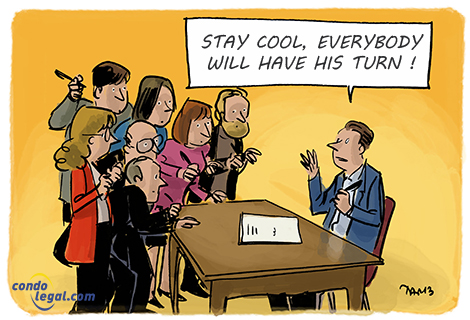21 Articles

The juridical personality of the syndicate is distinct from the one of the co-owners and directors. His acts are binding only on himself, besides for the exceptions provided by law. The faults committed by the syndicate have consequences only on its own civil liability and not on the directors. Under these conditions, they are held harmless by the syndicate and assume no responsibility for any costs, expenses, charges or losses they have incurred for the administration of…...

The duties and obligations of directors are at the heart of the good governance of a co-ownership. As part of their duties, directors are required to ensure that the syndicate of co-owners complies with the laws. This is why, in addition to the duties of diligence and loyalty of directors set out in the Civil Code of Québec, specific obligations, described as "statutory", are imposed on them. Some statutes provide for a directors' liability regime…...

Whatever the type of building they have chosen, all co-owners, without exception, are called upon to participate in meetings of co-owners. Thus they can vote on the questions on the agenda, and take various decisions necessary for the sound operation of the co-ownership. The co-owners are called upon to meet periodically for questions dealing with current administration, maintenance and operation of the syndicate, and sometimes exceptionally for specific questions required by the circumstances. This factsheet is an overview…...

The Meeting of the co-owners is one of the two decision-making bodies that governs a co-ownership.The major decisions that can potentially concern each member of the co-ownership are in principle taken in assembly. Whether for the work of alteration or improvement of the common portions, the election of the members of the board of directors or the meeting officers, it is up to the co-owners to decide. To ensure the proper functioning of the co-ownership, this body must act…...

During a meeting of co-owners, important decisions are made for each member of the co-ownership. These meetings are crucial as they determine the future management and maintenance of the property. Whether for alteration or improvement of the common portions, the election of the members of the board of directors, it is up to the co-owners to decide. However, if a co-owner is absent and has not taken care to be represented at the meeting, his…...

One of the essential moments of co-ownership is undoubtedly that of the meeting of co-owners. It is during this meeting that major decisions of the co-ownership are voted, such as the carrying out of certain works, the sale of a common portion and the modification of the declaration of co-ownership. Co-owners will also be able to debate and reflect on the directions to be given to their co-ownership. In addition, the assembly provides a unique…...

In order for a Meeting of co-owners to deliberate and adopt decisions, the Law provides that the co-owners (present or represented), eligible to vote, must hold the majority of votes. This requirement is called a quorum.It is also necessary that the quorum be maintained for the duration of the meeting. In the event that it cannot be reached or maintained, the Law provides for holding a second Meeting of co-owners (Make-up Meeting) during which the…...

An attendance sheet must be kept for each co-owner's meeting. However, the Civil Code of Québec does not specify any specific rules, such as the person responsible for its establishment, or the time when this formality must be completed. The declaration of co-ownership generally stipulates that it must be prepared by the directors or the secretary of the syndicate before the meeting is held. This attendance sheet is the physical proof of the presence…...

The minutes of the meeting are a document of paramount importance to ensure the execution of the decisions of the meeting. Therefore, the decisions taken by co-owners in a general meeting must be recorded and entered in the minutes. This document is essential for a co-ownership because it ensures the written preservation of the deliberations or consultation of the meeting of co-owners, as well as the result of each vote so that any co-owner and…...

It is to the board of directors as a whole, as a decision-making body, that the Civil code of Quebec confers the power to administer the affairs of the syndicate. Individual directors do not have any powers unless they have been specially authorized to do so. All decisions concerning the syndicate, the co-ownership or the immovable which is not under the jurisdiction of the meeting of co-owners, are the competence of the board of directors. Its main role is…...
